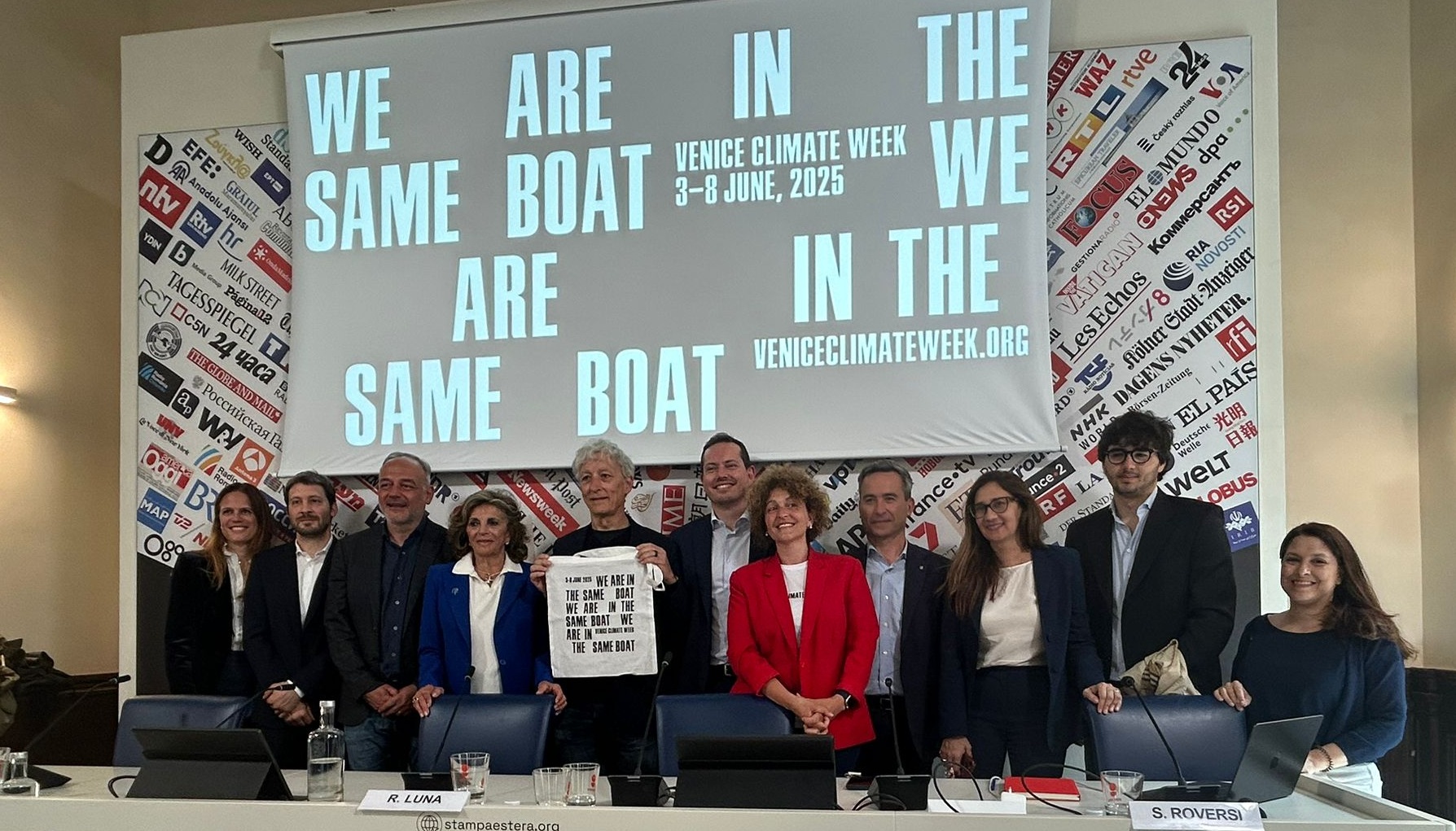Tomorrow, Marevivo will also take part in the “Planet Aqua” panel with Jeremy Rifkin.
Marine biodiversity is at risk: we know only 10% of it, and the threats are growing.
Earth should be called the “Water Planet.”
If a renowned economist like Jeremy Rifkin believes this, perhaps it’s time we all recognize just how vital the ocean is to the future of our planet. Oceans cover 71% of Earth’s surface, represent over 90% of its habitable space, and directly influence the survival of life on land. Through the water cycle, oceans keep the planet running: they regulate the climate thanks to their massive volume and thermal capacity, generate more than 50% of the oxygen we breathe, and absorb around one-third of human-produced carbon dioxide.
And yet, the sea continues to suffer — both globally and nationally — putting at risk an invaluable natural heritage. Instead of exploiting it further, we urgently need investment in research and knowledge. Currently, the ratio of funding between space research and ocean-atmosphere research is estimated at around 10 to 1.
These topics and more will be discussed at Venice Climate Week, taking place in Venice from June 3–8. The initiative was created by Corriere della Sera journalist Riccardo Luna, in collaboration with the Future Food Institute, to tackle the urgent issue of the climate crisis.
During the week, a panel at Ocean Space, organized in collaboration with the Marevivo Foundation, will focus on the need to put water at the center of the public, political, and economic agenda — recognizing it as our most vital common good.
Among the speakers: visionary economist Jeremy Rifkin, Marevivo President Rosalba Giugni, CMCC Scientific Director Giulio Boccaletti, Marevivo Vice President Prof. Ferdinando Boero, CNR researcher Valerio Rossi Albertini, and Dr. Antonio Ragusa, a member of Marevivo’s Scientific Committee.
In addition to issues like climate change, acidification, ocean warming, and overfishing, new threats are emerging — such as deep sea mining, promoted under the Trump administration to extract rare earth elements from the ocean floor. These operations risk permanently damaging a world rich in biodiversity that we barely understand: over 80% of the seafloor, and 98% of the deep sea, remain unexplored, with no complete biodiversity catalogue. Yet exploitation continues.
Recent tests in the Pacific suggest that it could take over 30–40 years for a mined deep-sea area to begin to recover — and there is no guarantee it ever will. Damage to the sediment may result in a 31% loss in the food chain, along with a dramatic decline in large marine organisms.
“Without a cultural transformation rooted in knowledge, there can be no ecological transition — which is essential for the survival of our planet,”
says Rosalba Giugni, President of Marevivo.
“This is a complex challenge, one that must balance economic development with environmental protection. It’s urgent — and we’re all called to be part of it — if we want to restore the fragile balance being broken by human activity and pollution.”
🔵 Panel Quotes:
“Global warming and the melting of polar sea ice are altering the ocean current systems that connect different parts of the global ocean — with negative effects on the climate,”
says Prof. Ferdinando Boero, Vice President of the Marevivo Foundation.
“The ocean keeps the world functioning — without it, there is no life. Knowledge is a non-negotiable foundation for living responsibly on this planet.”
“Carbon dioxide emissions are the main driver of climate change,”
notes CNR researcher Valerio Rossi Albertini,
“but they also have a less visible side effect: ocean acidification. When CO₂ dissolves in water, it forms an acid. In my demonstration during the panel, I’ll show how this process unfolds — and the harmful effects it has on marine life.”
“A few years ago, we discovered that microplastics had reached the human placenta,”
explains Dr. Antonio Ragusa, gynecologist and member of Marevivo’s Scientific Committee.
“Then we made another disturbing discovery: microplastics are also present in breast milk. Further research revealed that micro- and nanoplastics can enter the cytoplasm of cells and damage the structure and function of organelles — particularly mitochondria and the endoplasmic reticulum. This leads to changes in intrauterine life that can cause serious pathological consequences during pregnancy, in newborns, and even later in adult life.”






